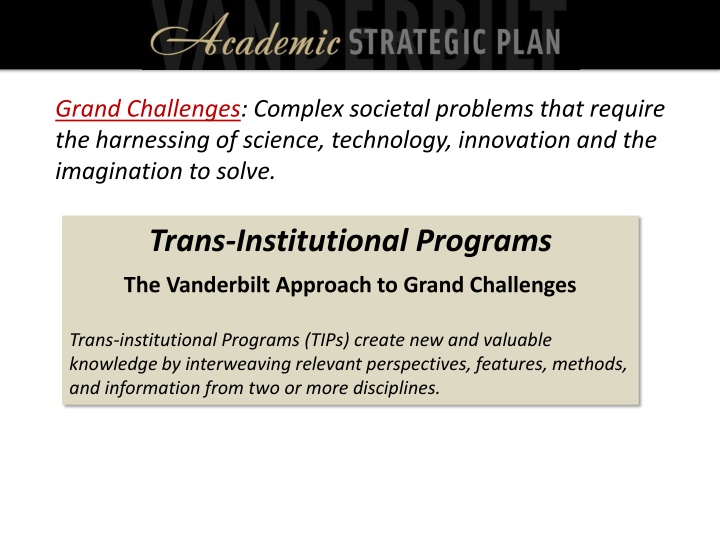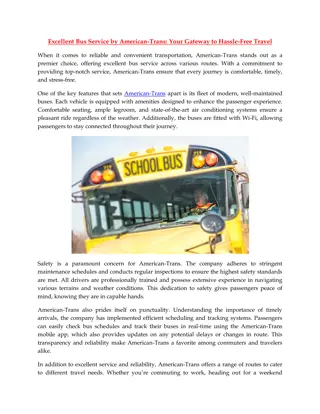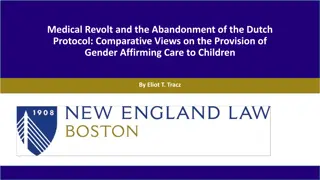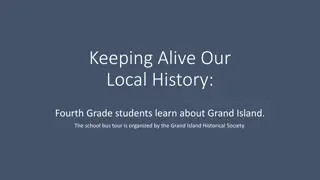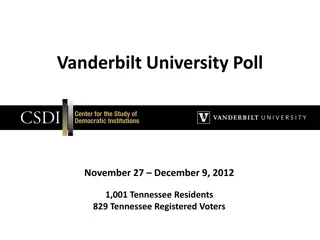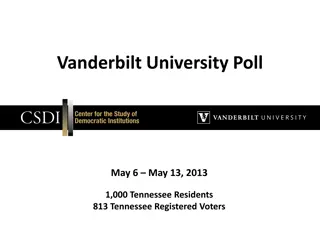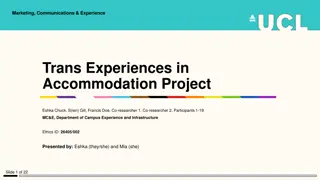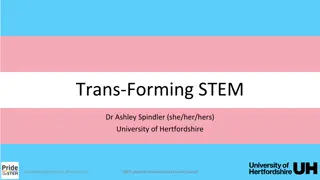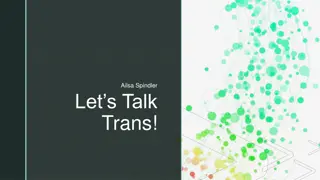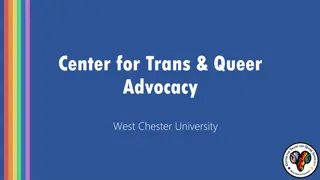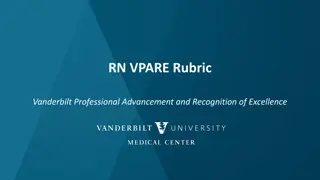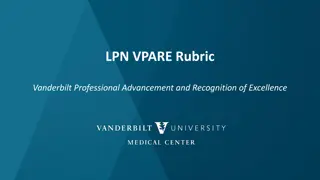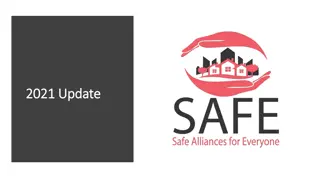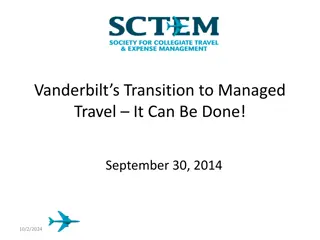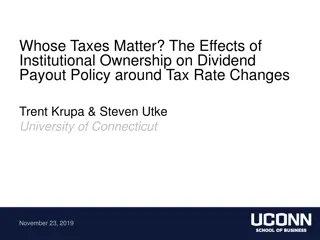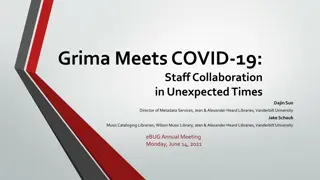Vanderbilt's Trans-Institutional Programs for Solving Grand Challenges
Vanderbilt University's Trans-Institutional Programs (TIPs) bring together diverse disciplines to tackle complex societal problems through innovative and collaborative approaches. With a focus on cross-disciplinary discovery, these programs facilitate new knowledge creation and foster solutions to pressing issues. Through initiatives like the Vanderbilt Reinvestment Awards and Ethics of Health and Human Flourishing, the university is at the forefront of addressing global challenges.
Download Presentation

Please find below an Image/Link to download the presentation.
The content on the website is provided AS IS for your information and personal use only. It may not be sold, licensed, or shared on other websites without obtaining consent from the author.If you encounter any issues during the download, it is possible that the publisher has removed the file from their server.
You are allowed to download the files provided on this website for personal or commercial use, subject to the condition that they are used lawfully. All files are the property of their respective owners.
The content on the website is provided AS IS for your information and personal use only. It may not be sold, licensed, or shared on other websites without obtaining consent from the author.
E N D
Presentation Transcript
Grand Challenges: Complex societal problems that require the harnessing of science, technology, innovation and the imagination to solve. Trans-Institutional Programs The Vanderbilt Approach to Grand Challenges Trans-institutional Programs (TIPs) create new and valuable knowledge by interweaving relevant perspectives, features, methods, and information from two or more disciplines.
Award Participants by School Support for Cross-Disciplinary Discovery and Learning 17 Inaugural Awards Granted Total 153 Medicine 52 Arts & Science 45 153 Participants Engineering 26 Peabody 14 Tackling Society s Grand Challenges 700+ Faculty Involved in the Proposal Process Law 3 Owen 3 Divinity 2 $50M over 5 years Blair 2 Nursing 1
Ethics of Health and Human Flourishing Health Solutions for the U.S. South VRAs Vanderbilt Reinvestment Awards Climate Change Governance Global Health Tech Initiative in Surgery and Engineering Chronic Disease in Underserved Settings Bioeffector Bioeffector Discovery Discovery NetsBlox: Digital Learning Wisdom Working Group Institute for Obesity and Metabolism Music, the Mind and Society Advancing Neuroimaging Molecular Probes The Pre3 Initiative Big Data Architecture Healthcare in Brazil VIAs Vanderbilt Initiative Awards Sterling Ranch Sustainability Research
Vanderbilt.edu/strategicplan Please visit website!
Changes to Process 1) Timing should be less rushed 2) Online application submission and review process (REDCap) 3) Expansion of what qualifies as trans-institutional 4) VRAs must have letter from the relevant deans, VIAs do not need a letter from the relevant deans 5) VRAs will be judged by the TIPs Council, not review panels 6) Developing more concrete and systematic feedback on proposals 7) Some turn-over in review panels, mostly the result of leaves
Features of Successful Proposals 1) Identifying an important problem and writing the proposal in a way that resonates with an audience of humanists, social scientists, and life/physical scientists. As one panel member said, we looked for inspiringproposals. 2) They reflect true cross-campus collaborations that might not happen without TIPs funding. It is important that these collaborations also be trans-institutional in spirit. 3) Attention to teaching and mentoring that made it clear this aspect of the proposal was central, not an afterthought. 4) Makes a compelling case that the funding will really make a difference. Big ideas do not always require a lot of money. Thoughtfulness in budget proposals. 5) Proposal made a case for why this topic could be an area of excellence at Vanderbilt.
Common Problems in TIPs Proposals 1) Involves a project dominated by a single academic unit, with others being only ceremonially involved. Related, adding names to the proposal that were not centrally involved detracted from the proposal. 2) Project that reflects incremental aims beyond previous work by the same (or nearly the same) team. 3) Project is clearly well-suited for classical existing extramural funding programs (by NIH grants, for example). 4) Educational component did not seem earnest and/or compelling. 5) Proposals with big ideas, but no clear plans on how to execute that idea suffered.
Frequently Asked Questions Would a proposal be strengthened by having 3 or more colleges involved? The number of colleges in and of itself should not matter. It is the quality of the idea that will drive decisions. Would a proposal be strengthened by having a larger number of faculty involved? Again, the number itself should not matter. It is the quality of the engagement that is important. On the pre-proposal submission form, the number of collaborators is limited to 15. If additional faculty members need to be included, they can be listed on the cover page of the pre-proposal PDF. Does a proposal need to involve both learning and discovery? Yes. A successful proposal will need to describe how both of these critical missions will be advanced with this investment of money. http://www.vanderbilt.edu/strategicplan/trans-institutional-programs/tips-FAQ.php
